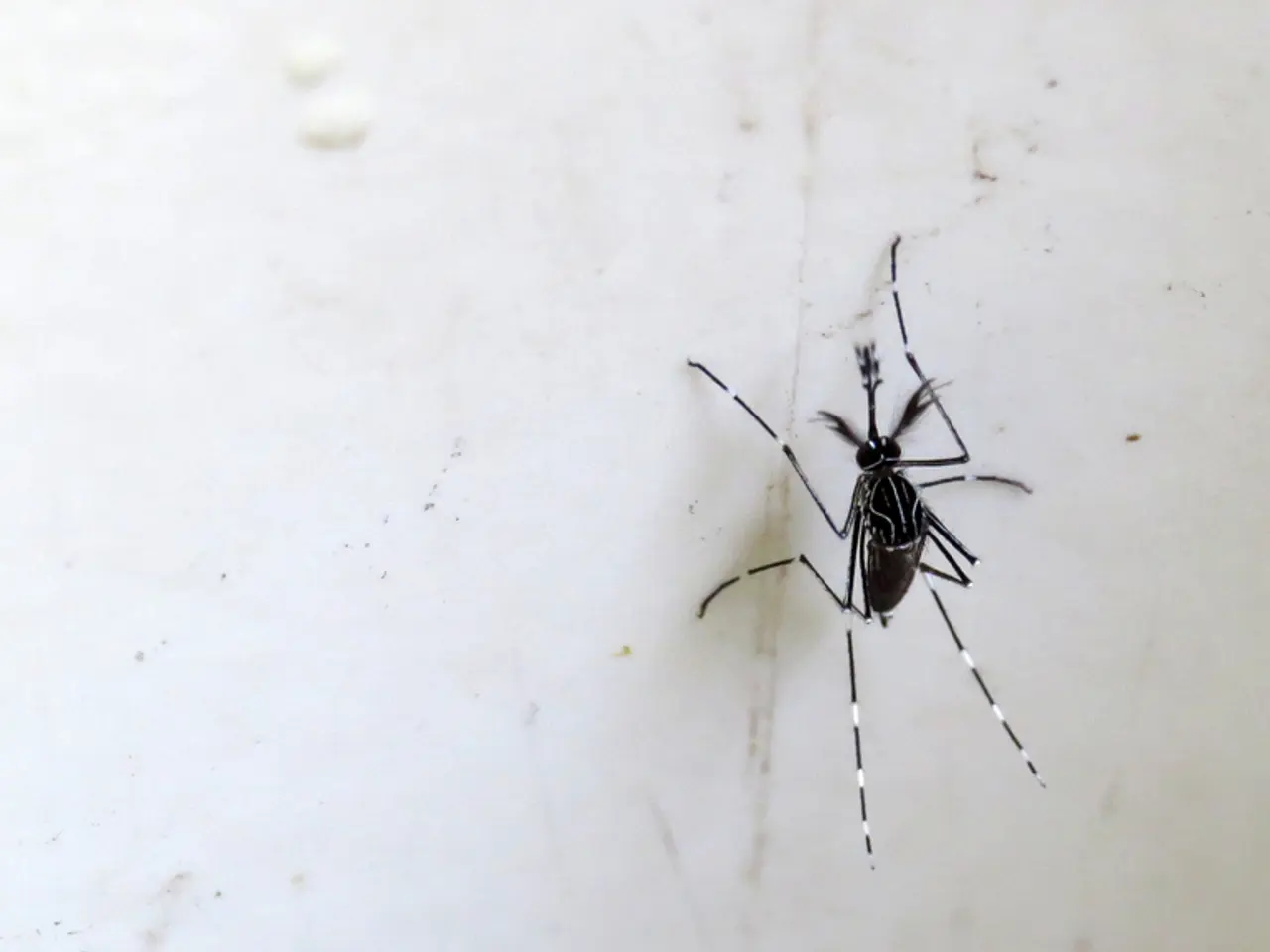Increased Risk of West Nile Virus Triggers First Case in Larimer County and Insecticide Spraying in Fort Collins
Fort Collins Conducts Mosquito Fogging to Combat West Nile Virus Outbreak
The City of Fort Collins has taken action to control the spread of West Nile virus by conducting mosquito fogging in certain areas on July 24 and 27, 2025. This decision was made in response to high levels of West Nile virus-infected Culex mosquitoes detected locally.
The spraying zone covers an area from Overland Trail to Interstate 25, and between Mulberry Street and Drake Road. The fogging trucks, operated by Vector Disease Control International (VDCI), applied a permethrin-based mist during dusk until approximately 2 a.m., weather permitting.
Residents are advised to stay indoors and close windows and doors for 30 to 60 minutes after spraying to minimize pesticide exposure. Pet owners are encouraged to bring their pets inside during this time as well. Additionally, organic gardens, ponds, and water features should be covered with a tarp or sheet during the spraying.
The City of Fort Collins coordinated these efforts with the Larimer County Department of Health and Environment and followed guidelines outlined in the City's West Nile Virus Management Policy. Local schools and Colorado State University also adjusted outdoor event timings within the spray zone to reduce public exposure during spraying.
As a precaution, residents are encouraged to take daily prevention measures. This includes using EPA-registered insect repellents, wearing long sleeves and pants outdoors, and avoiding being outside at dawn and dusk.
Unfortunately, West Nile virus has already impacted the community. A local resident has contracted the virus and is currently recovering. Larimer County has confirmed the first human case of West Nile virus in 2022, with nine human cases reported across Colorado as of late July 2025.
Tom Gonzales, Larimer County Public Health Director, has urged everyone to take precautions to protect themselves and their families. He emphasized that older adults and those with certain health conditions, such as cancer, diabetes, or immune system deficiencies, are at higher risk for severe illness from West Nile virus.
For more information on West Nile virus risk, prevention, and mosquito control updates, residents can visit larimer.gov/westnile or fcgov.com/westnile. Residents can also track the fogging trucks in real-time on the City's website.
By taking these measures, the City of Fort Collins aims to reduce the transmission risk of West Nile virus and protect its residents from this potentially serious illness.
- The mosquito fogging operation in Fort Collins, conducted by Vector Disease Control International (VDCI), covers an area from Overland Trail to Interstate 25, and between Mulberry Street and Drake Road.
- To reduce pesticide exposure, residents are advised to stay indoors and close windows and doors for 30 to 60 minutes after spraying, and pet owners are encouraged to bring their pets inside during this time as well.
- The City of Fort Collins has worked in coordination with the Larimer County Department of Health and Environment in combating the West Nile virus outbreak, following guidelines outlined in the City's West Nile Virus Management Policy.
- In addition to the fogging operations, residents are encouraged to take daily prevention measures such as using EPA-registered insect repellents, wearing long sleeves and pants outdoors, and avoiding being outside at dawn and dusk.
- The Larimer County Department of Health and Environment has confirmed the first human case of West Nile virus in 2022, with nine human cases reported across Colorado as of late July 2025.
- For more information on West Nile virus risk, prevention, and mosquito control updates, residents can visit larimer.gov/westnile or fcgov.com/westnile. They can also track the fogging trucks in real-time on the City's website.




